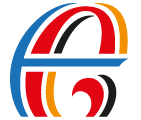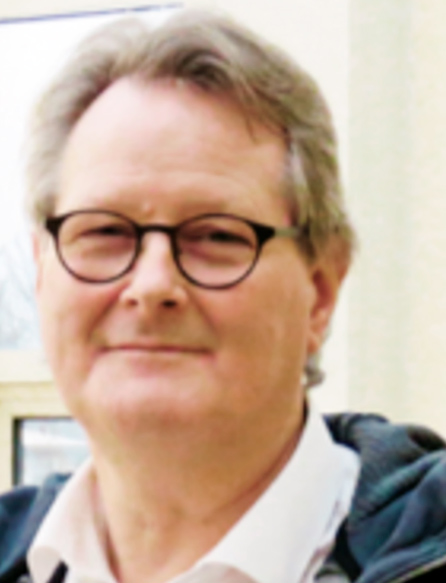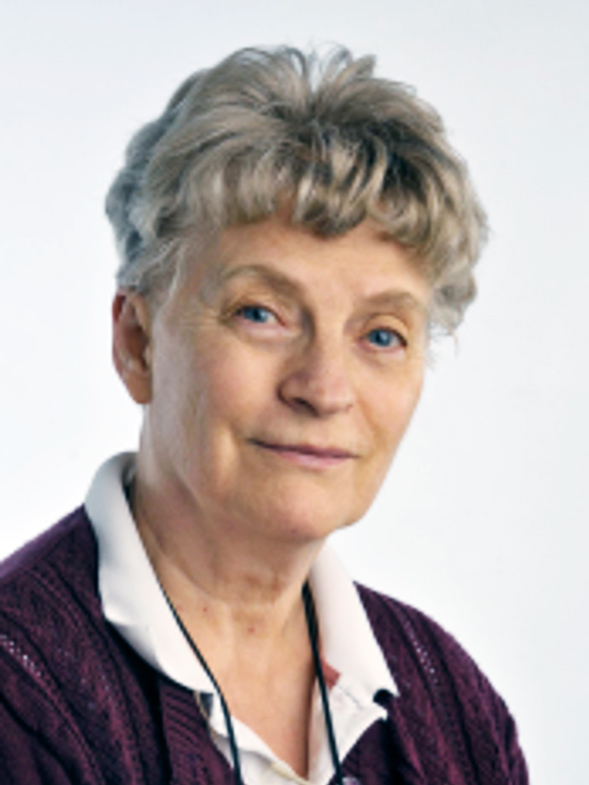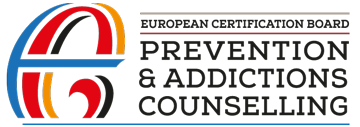About ECB
The European Certification Board was set up for threefold purposes:
- To ensure professionalism in addiction treatment and prevention efforts in the participating countries
- To set standards for education and work experience for counselors and prevention specialists
- To ensure quality in treatments for alcohol and drug addicts, treatments for food addicts, prevention efforts, and clinical supervision.
Those having been certified by the ECB are required to renew their certification every two years in order to show that they have been active in their profession and have acquired new knowledge. This is done to ensure that the knowledge and skills of counselors, prevention specialists and clinical supervisors is always recent and that new informations is readily acquired.
European Certification Board in Prevention and Addictions Counselling – ECB.
Article 1
The name of the organization is European Certification Board in Prevention and Addictions Counselling.
Article 2
Address of the organization is: Hverafold 1-3, 112 Reykjavík, Iceland (PO Box 943, 121 Reykjavik). Place of jurisdiction is Reykjavik.
Article 3
The purpose of the European Certification Board in Prevention and Addictions Counselling is to:
- promote professionalism in the field of prevention counseling and alcohol and drug counseling;
- promote professional recognition of qualifications for prevention counseling and alcohol and drug counselors.
Article 4
European Certification Board in Prevention and Addictions Counselling intends to achieve its goals by:
- assessing and certifying competency (training) for preventive counseling and alcohol and drug counseling according to criteria and standards of the International Certification and Reciprocity Consortium – IC &RC;
- issue special certificates confirming the fulfillment of qualification requirements. Certificates from the European Certification Board in Prevention and Addictions Counselling shall not be understood as a license to set up a fee for services rendered if it conflicts with laws or regulations in the district / state where the person concerned is working. Where laws or regulations require that the consultant receives guidance from a certified person, he/she must work under the guidance;
- promote and organize cooperation of those who meet the qualification requirements and have received respective certification from the European Certification Board in Prevention and Addictions Counselling.
Article 5
Founders of the European Certification Board in Prevention and Addictions Counselling are:
- Stefán Jóhannsson Boðaþingi 24, 203 Kópavogur, ID. 030835-4689.
- Sigurlína Davíðsdóttir, Fannafold 103, 112 Reykjavík, ID. 131142-2269.
- Árni Einarsson, Neðstaleiti 2, 103 Reykjavík, ID. 030855-2809.
Article 6
European Certification Board in Prevention and Addictions Counselling is an non-governmental non-profit organization. Membership is open to all people of all ages regardless of gender, color, nationality, creed, social position or political persuasion living in the European states.
Article 7
The Board of European Certification Board in Prevention and Addictions Counselling shall be composed of one representative from each member countries. Board members shall be elected for two-year terms at the annual meeting which is held every year from September to November. A three-member executive committee shall be elected at the first Board meeting after each AGM composed of chairman, treasurer and secretary. The chairman calls for a board meeting when necessary, but not less frequently than once a year.
Daily management of the The European Certification Board in Prevention and Addictions Counselling is in the hands of the executive committee. Business writing is in the hands of the board chairman unless the board agrees otherwise.
Article 8
The term of office of ministers is the period between the AGM meetings which are held every two years. At the Annual General Meetings, the board reports for work and financial positions prior two years.
Article 9
Annual fee is decided at the AGM. Annual fee shall cover daily operations. The European Certification Board in Prevention and Addictions Counselling may also receive a fee for the issuance of bonds as well as grants, provided that they contain no obligations other than working on the boards goals.
Article 10
Decision to dissolve the organization shall be taken at an annual general meeting and is only valid if approved by an extended majority of ¾ of attended members is in favor. In case of dissolution all assets and properties of European Certification Board in Prevention and Addictions Counselling shall be placed under the authority of IOGT in Iceland.
This constitution was approved at the inaugural meeting of the European Certification Board in Prevention and Addictions Counselling held September 1st 2010 with changes approved at its bi-annual meeting held September 29th 2019.
Reykjavik, September 29th 2019.
ECB will support the public good by offering certification which is supported in as many participating countries as possible, as well as testing for professionals in prevention, treatment and clinical supervision.
Members of the European Certification Board are listed below. Three board members comprise an executive board, which handles day-to-day issues, whereas the board as a whole handles policy issues and the direction of the work.
Board members
Esther Helga Guðmundsdóttir, MSc.
Árni Einarsson, MA
Sigurlína Davíðsdóttir, Ph.D.
Tentative consultants:
Guttorm Toverud, Ph.D., Norway/Sweden
Kjetil Vesteraas, M.A., Norway
Phyllis Abel Gardner Deal, Ph.D., U.S.A, former president of IC&RC
Emilis Subata, Ph.D., Lithuania
Nijolė Goštautaitė-Midttun, Ph.D., Lithuania
Gabor Kelemen, Ph.D., Hungary
Richard M. E. Mulller, M.D., Luxembourg
Ewa Osyatinska, Ph.D., Poland







Social Contact